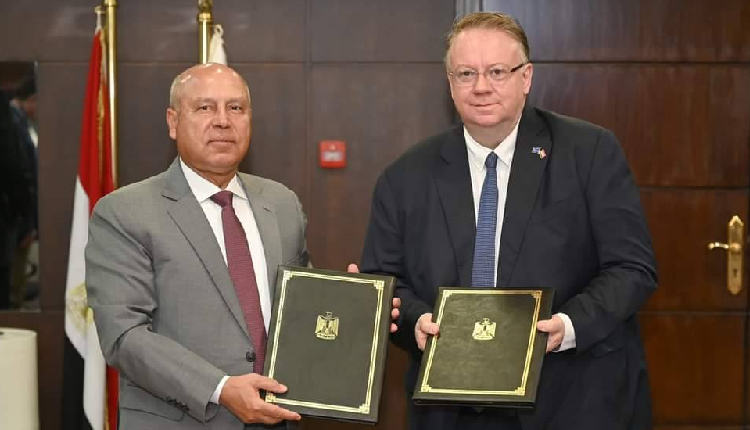Egypt’s Ministry of Industry and the International Labour Organisation (ILO) signed on Wednesday an agreement to launch a three-year co-operation project aimed at improving productivity and working conditions in key industrial sectors in the country.
Titled “Promoting a Productive Environment for Decent Work: Enhancing Productivity and Improving Working Conditions in Key Industrial Sectors in Egypt,” the three-year project is funded by the Italian government with €2.5 million.
According to Deputy Prime Minister for Industrial Development Kamel Al-Wazir, the project will focus on key industrial sectors such as the marble industry in the Shaq El-Thoaban industrial cluster and the leather industry in El Robiki Leather City. The project will also conduct an initial assessment of productivity and working conditions in the Egyptian furniture industry.
Moreover, it is set to offer training programmes, consultations, and technical support to both sectoral organisations and individual businesses. This will help strengthen the capacities of local institutions involved in these industries, including technology centres affiliated with the Ministry of Industry.
The ILO project aligns with Egypt’s Vision 2023, the National Programme for Structural Reforms 2021-2024, and the National Strategy for the Empowerment of Egyptian Women 2030. It supports the development of medium, small, and micro projects, promotes entrepreneurship culture, and contributes to the United Nations’ sustainable development goals.
Deputy Prime Minister Al-Wazir emphasised the importance of the industrial and transportation sectors in Egypt for creating good job opportunities. He stressed the need for a strong work ethic and productivity to benefit the economy.
The new project builds upon a development co-operation programme – “technical support for leather, marble and furniture industrial districts” – signed with the Italian Agency for Development Cooperation earlier this year. It aims to enhance Egypt’s industrial system, support the country’s economic development and improve the production capacity of leather, marble and furniture industrial districts.
Attribution: The Egyptian Cabinet
Subediting: Y.Yasser











